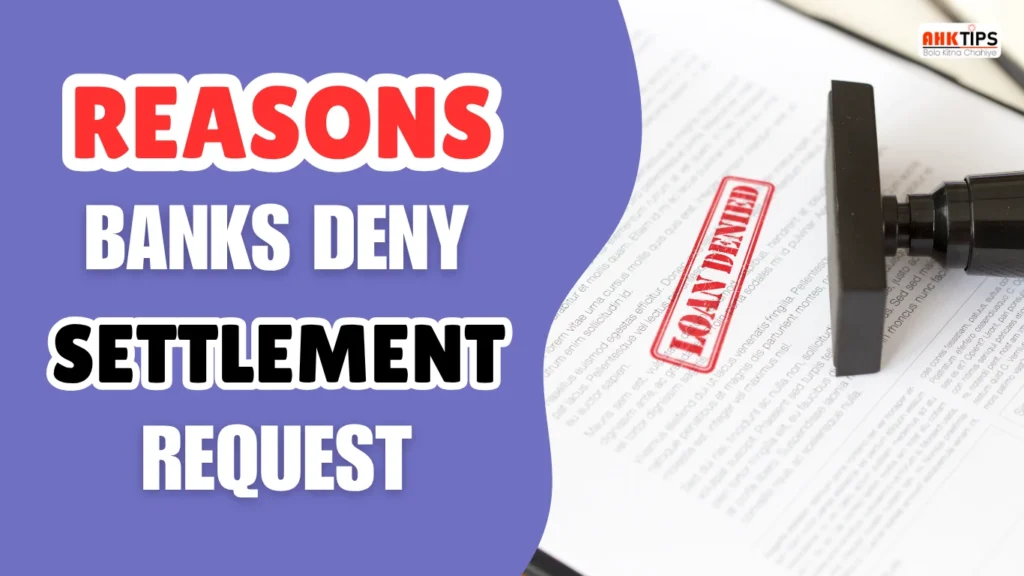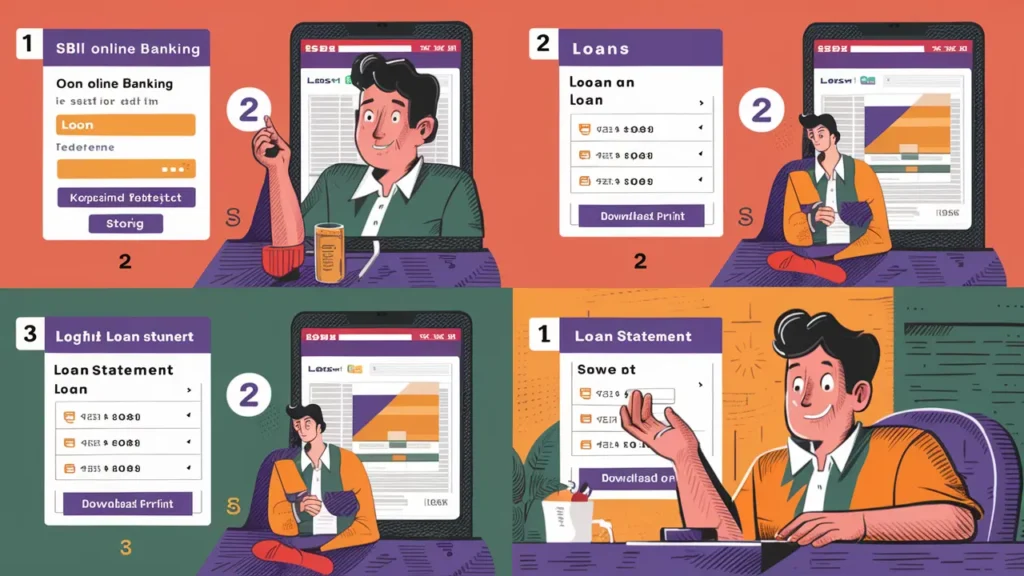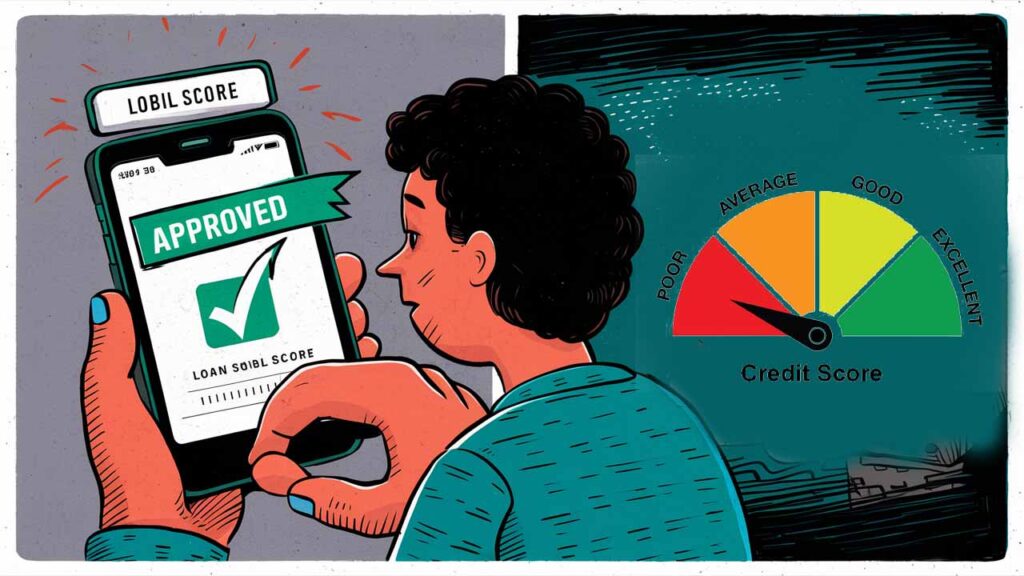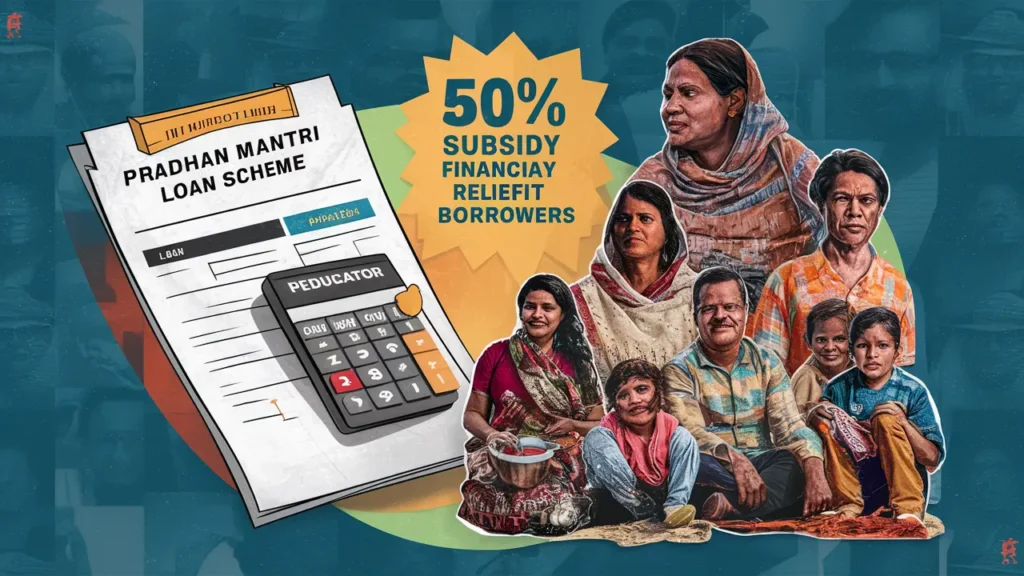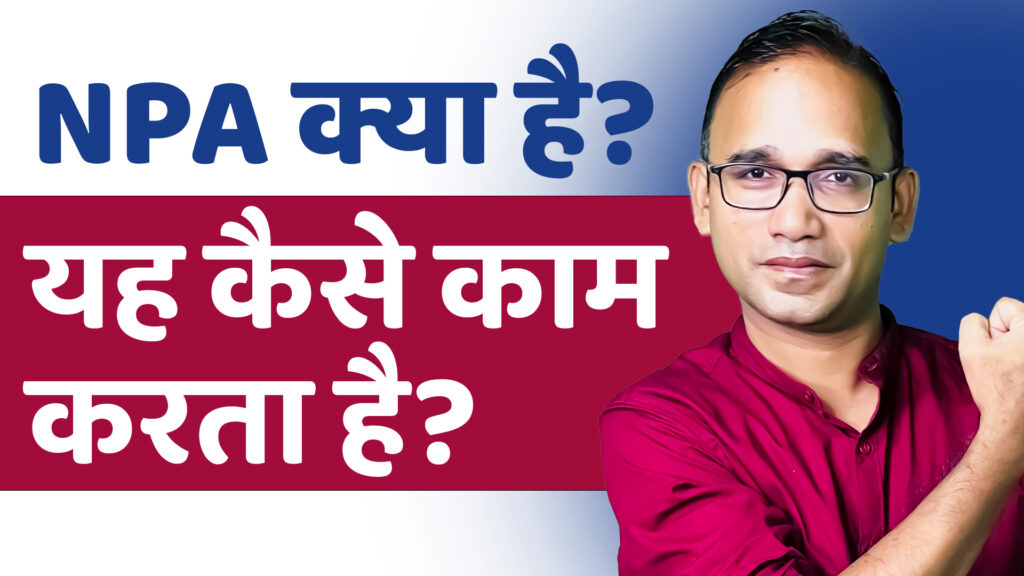Summary
This page lists the most common mistakes made by debt settlement applicants and explains how such mistakes could lead to rejection. It addresses the need for strategy, reasonable bids, and honest communication for the acceptance of your settlement. Bad documentation, high expectations, inability to offer evidence of hardship, and too strong dependence on a good payment history are the main causes of denial. It also demystifies what the banks view before approving a settlement—that is, loan status, payment history, type of loan, and your ability to pay a lump sum. To improve chances of success, the post emphasises being wise with your offer, aligning your request to the bank’s expectations, and being ready with thorough and honest paperwork.
Introduction
A debt settlement can provide actual financial relief if loan repayment is causing problems, but only if conducted correctly. Many of the debtors approach banks for loan settlement without knowing the procedure or getting ready properly. Delays, denials, or long-term credit damage follow from this sometimes. From not precisely stating your financial difficulty to turning in inadequate documentation, numerous typical errors can reduce your chances of approval. This essay will help you avoid these traps, clarify what banks seek in settlement demands, and provide doable advice on how to strengthen your case. Whether your loan is unsecured or in default, knowing what lenders want—and what to avoid—will enable you to reach a fair and successful conclusion free from expensive mistakes.
Common Mistakes Borrowers Make When Requesting Debt Settlement
Debt settlement gives borrowers drowning in past-due payments and mounting interest much-needed relief. Still, success depends on careful handling of the plan. Many borrowers unwittingly make blunders that reduce their chances of approval or lead to undesirable results. Knowing the mistakes in a debt settlement plan will enable you to avoid delays, denials, or long-term financial damage.
Why Strategy Matters in Debt Settlement
Bargaining for debt settlement is like performing. You are asking less than what the lender would have approved. If you want them to say yes, your request seems reasonable given actual hardship and offers the right strategy.
Lenders can leave the table even for little mistakes.
Key Mistakes in Debt Settlement Request
Not Explaining Financial Hardship Clearly
Lenders have to consider a settlement for a good cause. One of the most typical mistakes in debt settlement requests is failing to explain why you cannot pay back the full amount.
An unclear answer or no documentation at all could indicate your request dishonesty or weakness. You should clearly show your financial situation—job loss, medical bills, lower income, or other legitimate hardships.
Making Unrealistic Offers
Another mistake is offering a too low settlement sum without any justification. Lenders look for as much recovery as they can. They might not even take your offer if it is well below their expectations and lacks logic.
See a specialist to find out what sum would be reasonable depending on your debt level and financial situation; research similar settlements.
Ignoring Written Agreements
Some loan applicants believe a verbal agreement suffices. You lack evidence of the revised terms; nevertheless, without a written and signed confirmation. This can cause ongoing efforts at collecting or later legal problems.
Always ask for and save written records of the final settlement terms—including precise amounts, payment schedule, and assurance that the debt will be listed as satisfied.
Forgetting to Consider the Tax Impact
Tax officials may treat forgiven debt as taxable income. Many debtors ignore this and find surprising tax results. Although not all settlements lead to tax obligations, it is important to see a tax consultant before consenting to a large write-off.
Settling Without Understanding Credit Impact
The settlement of debt can lower your credit score. Should you suddenly seek a settlement while still current on your payments, your credit could suffer greatly. Especially if you intend to apply for future credit, it is imperative to know the long-term effects before moving forward.
How to Avoid These Mistakes
Start by compiling all the information. Know your debt, your spending limit, and the reasons behind your need for the settlement. Tell the lender straightforwardly or use a reputable settlement company to help.
Prepare Before You Ask
Sort debt, receipts of income, and expenses. Be ready to go over your situation and provide a realistic, one-time payment or set-up you might use going forward.
Think Long-Term
Avoid offering something you cannot keep a promise of. Choose a settlement plan based on your real circumstances, not one determined by pressure or hope.
Knowing the most often occurring errors in debt settlement requests helps you to approach the process confidently and clearly, improving your chances of a fair and successful outcome.
What Banks Consider Before Approving a Loan Settlement Request
For those under financial strain, debt settlement might be a lifeline; unfortunately, not all requests are granted. Knowing the bank standards for debt settlement approval will enable you to approach the procedure deliberately and raise your prospects of success.
Banks consider particular elements to decide whether to accept a lowered payment offer. Understanding these elements will enable you to present a mstrongerargument.
The Bank’s Perspective on Debt Settlement
Settlement is the agreement by the bank to take less than the whole amount owed. Although this causes some loss, banks could take this into consideration if it is the best course of action for recovery. Their choice rests on facts, risk, and the borrower’s financial behaviour.
Key Bank Criteria for Approval of Debt Settlement
Financial Hardship Evidence
Banks demand evidence that the borrower really cannot pay back the whole loan. Lack of detailed documentation could cause the request to be interpreted as an attempt to evade complete repayment rather than a need.
Documents banks might review could include:
- Recent earnings reports
- Medical expenses or letters of employment loss.
- Records of a bank account revealing cash flow issues
- Notices of loan default or payment delays
Your request looks more trustworthy the more thorough and consistent your documentation is.
Duration and Status of the Loan
Approval also factors in loan age and quality. When a loan has already gone late or has been in default for some period, settlement is more likely. Should you still be making timely payments, banks might not find justification in a settlement.
Since the likelihood of complete recovery is very minimal, loans that have already been written off or sent to collections generally take front stage in settlement talks.
Previous Repayment History
Banks evaluate your whole borrower behaviour. Should you have past late payments, skipped EMIs, or uneven repayments, the bank might call for settlement. If there is a history of non-cooperation, though, they might be less eager to compromise.
On the other hand, it could work to your advantage if you have demonstrated good faith by trying to make partial payments or keep in contact.
Loan Type and Amount
Moreover, the kind of debt counts. Credit cards and personal loans—unsecured loans—are more often paid off than secured loans like house or auto loans, in which case the bank has collateral.
Still another factor is the overall outstanding amount. Banks would want to settle fast if the cost of seeking recovery via legal channels is more than the likely settlement sum.
Availability of Lump Sum Payment
At settlement, banks typically want a one-time payment. Based on what you can pay, a clear lump sum offer will raise your chances of acceptance.
The bank wants guarantees that, should it agree to settle, the money will be quick and definitive.
How to Align Your Request with Bank Criteria
Know and fit the bank requirements for debt settlement approval to raise your prospects. Show a well-organized proposal with full documentation and a reasonable price.
Build a Clear Case
Tell people straight up and be honest about your circumstances. Steer clear of broad assertions. Support your task with statistics and facts.
Show Willingness to Resolve
Keep lines of open contact and show that you wish to fairly pay off the loan. This strategy can inspire confidence and raise approval chances.
Can a Strong Repayment History Hurt Your Settlement Request?
Although it would seem odd, sometimes having a solid repayment history works against you when you are requesting a loan settlement. Many of the borrowers believe that past responsibility increases their chances of approval. As it is, the reverse can occur. This makes the issue of good repayment history, debt settlement denial, both relevant and somewhat misinterpreted, significant.
How Debt Settlement Works
Usually, debt settlement is provided to borrowers experiencing financial difficulties and unable to pay back their whole loan amount.
Usually, the lender must show evidence of actual risk—missed payments, extended defaults, or severe financial difficulty—for them to even take this alternative under consideration.
Why a Good Repayment Record May Lead to Denial
Signals Ability to Pay
The bank knows from a regular repayment record that you have been handling your payments well. Lenders may believe you can keep your account in good standing if you have never missed an instalment.
This can make them think that your request is an attempt to lower your payment without cause rather than based on actual financial hardship.
Low Perceived Risk for the Lender
One of the risk decisions is debt settlement. Lenders authorize settlement when they think non-recovery is very likely. A borrower having a clean record does not meet this profile.
The bank could be sure you will keep making late payments or catch-up. This lessens their need to provide any discounts or cutbacks.
Weakens Negotiation Leverage
Your negotiation position is weaker when you approach a settlement without demonstrating financial difficulty. Given no risk of loss, the lender has no justification for writing off some of the debt. A strong payment history gives them leverage, not you.
How Lenders Assess Settlement Requests
Lenders examine to decide whether to approve a settlement:
- Recent defaults and payment histories
- Correspondence from the borrower regarding difficult circumstances
- Present financial statements
- Period of delinquency, should one exist.
In the framework of good repayment history debt settlement rejection, it is evident that the absence of late payments or defaults could make the lender less inclined to take your request into consideration.
What You Can Do If You Have a Good Payment Record
If you still desire a settlement, you must create a case strong enough to transcend your payment record.
Provide Current Financial Documents
Show recent financial changes, medical bills, or revised income statements. If your circumstances have lately gotten worse, explicitly state it in your supporting documentation.
Offer a One-Time Payment
Sometimes, even with a clean record, a lump sum payment will help to make your proposition more appealing. It immediately closes the lender, particularly in cases when the loan is almost at its end.
Be Honest and Transparent
Steer clear of disguising your payback records. Rather, explain why the circumstances have changed and why it is not possible to keep paying full amounts. The lender is more likely to review your request a more transparent and orderly you approach things.
Knowing the importance of proper debt settlement request denial helps you avoid presumptions that might cause rejection and better prepare a strategy.
How Incomplete Documentation Leads to Debt Settlement Rejection
For borrowers drowning in debt or rising amounts, debt settlement request can be a great answer. But a basic but crucial error—poor documentation—results in many requests being denied. Documentation problems in debt settlement rank among the most often cited causes of failure. Knowing what to offer and why it’s important will either help or ruin your settlement demand.
Why Documentation Is Crucial in Debt Settlement
Lenders want more than just a request to take into account a settlement. They need evidence that your financial circumstances call for lowering the overall debt load. Your assertion seems weak, unproven, or perhaps dishonest without accompanying documentation.
Common Documentation Issues in Debt Settlement
Missing Proof of Financial Hardship
Presenting evidence that you actually cannot fully repay the loan is one of the most crucial components of a debt settlement application. Should you overlook records including medical bills, job loss letters, or income statements, the lender could reject your application.
Lenders need a coherent, supported by actual evidence. Without it, they could conclude you’re just trying to pay off debt without a good reason.
Incomplete Income and Expense Reports
You must present your whole financial situation when making a settlement demand. This covers your monthly expenses, your income, and any outstanding debt elsewhere.
Should the papers be inadequate, out-of-date, or inconsistent, the lender might not believe your claims. Information gaps foster uncertainty that could lead to denial.
Lack of Account Details
Some borrowers overlook including simple loan details as account numbers, outstanding balance, or loan status. Lenders handle several accounts, thus missing or confusing information could cause the procedure to be delayed or even total rejection.
Your request should be accompanied by the current statement or loan summary and be specific to a given account.
No Written Request or Formal Proposal
Not enough spoken conversations or casual emails. One needs a written, orderly proposal. It should be very clear about the settlement amount you are proposing and your payment method.
Lenders want polished, orderly demands that seem professional. A missing or badly drafted proposal points to a lack of preparation or seriousness.
How to Avoid Documentation Issues in Debt Settlement
Prepare a Complete Financial Snapshot
Get the required financial documentation before calling your lender. This covers utility bills, rent receipts, loan statements, income evidence, and other paperwork attesting to recent financial difficulty.
Check that everything is formatted and current. Add your present circumstances as well as any changes that have made paying back difficult.
Double-Check All Submissions
Tiny mistakes can cause significant delays. Make sure your name, loan number, and amounts line up across all the paperwork. Make sure nothing particularly significant is lacking or confusing.
Include a Clear Settlement Offer
Ask for more than just alleviation; suggest a particular fix. Offer, for instance, a one-time payment or a lowered total payable amount. Make the offer reasonable, considering your financial situation.
Importance of Avoiding Mistakes
One of the main reasons they are turned down or disregarded in debt settlement requests is documentation problems. Lenders want evidence to back up every assertion. Your chances of a good negotiation increase with the more exact and detailed your documentation is.
Conclusion
For those who are in financial trouble, a debt settlement request can be a sensible approach; yet, the result depends on meticulous planning and open communication. Most offers are turned down for simple mistakes such as inaccurate hardship explanations, out-of-reach proposals, or missing documentation. Your offer will be more appealing knowing what banks evaluate—that is, loan status, payment history, and your ability to pay a lump sum. Sometimes, a good payback history can also be a challenge, so strategy becomes even more important. Always make sure your offer is reasonable, your documents are full, and your grounds are clearly stated. The right mental preparation and planning will help you avoid common errors and raise your chances of effective debt settlement.
FAQ’s
Lack of appropriate documents, unrealistic offers, or the borrower displaying no actual evidence of financial difficulty usually cause banks to turn down requests.
Certainly. A good repayment record could help banks see you as able to keep paying, so it lowers your odds of approval.
Income statements, medical records, letters of job loss, loan account information, and a formal settlement offer should all be supplied.
Sure. Usually, a debt settlement reduces your credit score, especially if you are current on payments when you seek it.

